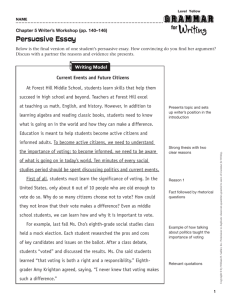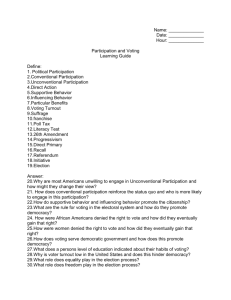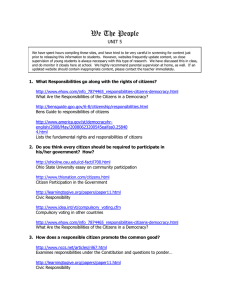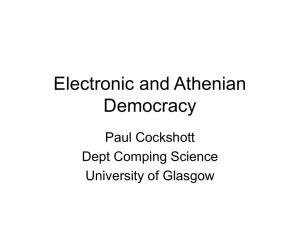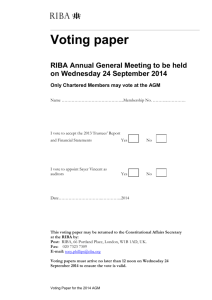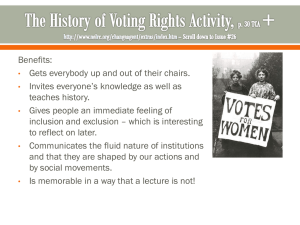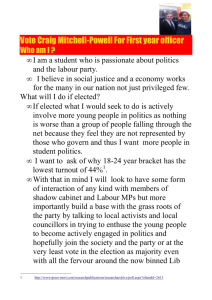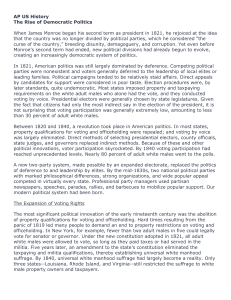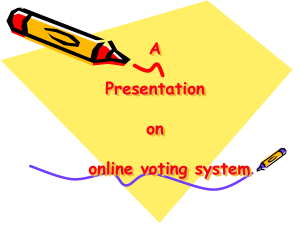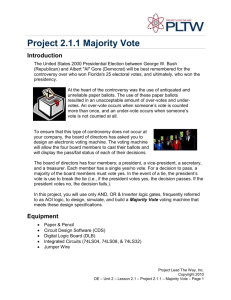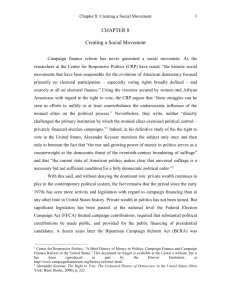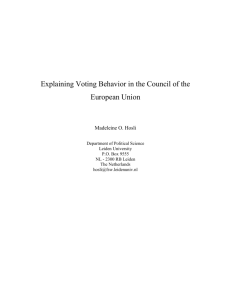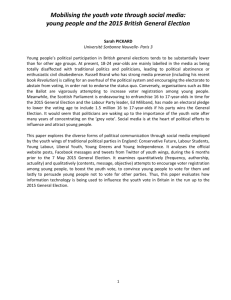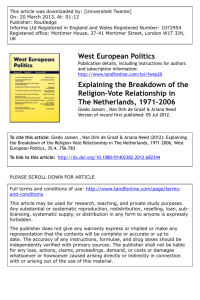Why voting is a waste of time
advertisement
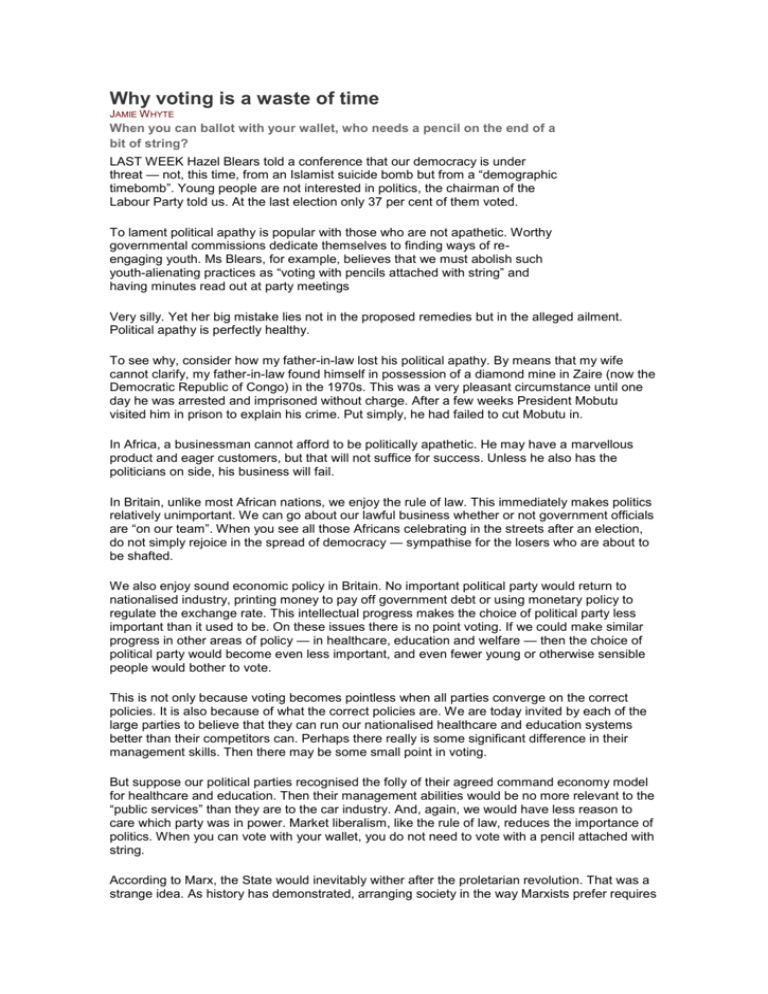
Why voting is a waste of time JAMIE W HYTE When you can ballot with your wallet, who needs a pencil on the end of a bit of string? LAST WEEK Hazel Blears told a conference that our democracy is under threat — not, this time, from an Islamist suicide bomb but from a “demographic timebomb”. Young people are not interested in politics, the chairman of the Labour Party told us. At the last election only 37 per cent of them voted. To lament political apathy is popular with those who are not apathetic. Worthy governmental commissions dedicate themselves to finding ways of reengaging youth. Ms Blears, for example, believes that we must abolish such youth-alienating practices as “voting with pencils attached with string” and having minutes read out at party meetings Very silly. Yet her big mistake lies not in the proposed remedies but in the alleged ailment. Political apathy is perfectly healthy. To see why, consider how my father-in-law lost his political apathy. By means that my wife cannot clarify, my father-in-law found himself in possession of a diamond mine in Zaire (now the Democratic Republic of Congo) in the 1970s. This was a very pleasant circumstance until one day he was arrested and imprisoned without charge. After a few weeks President Mobutu visited him in prison to explain his crime. Put simply, he had failed to cut Mobutu in. In Africa, a businessman cannot afford to be politically apathetic. He may have a marvellous product and eager customers, but that will not suffice for success. Unless he also has the politicians on side, his business will fail. In Britain, unlike most African nations, we enjoy the rule of law. This immediately makes politics relatively unimportant. We can go about our lawful business whether or not government officials are “on our team”. When you see all those Africans celebrating in the streets after an election, do not simply rejoice in the spread of democracy — sympathise for the losers who are about to be shafted. We also enjoy sound economic policy in Britain. No important political party would return to nationalised industry, printing money to pay off government debt or using monetary policy to regulate the exchange rate. This intellectual progress makes the choice of political party less important than it used to be. On these issues there is no point voting. If we could make similar progress in other areas of policy — in healthcare, education and welfare — then the choice of political party would become even less important, and even fewer young or otherwise sensible people would bother to vote. This is not only because voting becomes pointless when all parties converge on the correct policies. It is also because of what the correct policies are. We are today invited by each of the large parties to believe that they can run our nationalised healthcare and education systems better than their competitors can. Perhaps there really is some significant difference in their management skills. Then there may be some small point in voting. But suppose our political parties recognised the folly of their agreed command economy model for healthcare and education. Then their management abilities would be no more relevant to the “public services” than they are to the car industry. And, again, we would have less reason to care which party was in power. Market liberalism, like the rule of law, reduces the importance of politics. When you can vote with your wallet, you do not need to vote with a pencil attached with string. According to Marx, the State would inevitably wither after the proletarian revolution. That was a strange idea. As history has demonstrated, arranging society in the way Marxists prefer requires an almighty State. The liberal-constitutional model, however, does allow for the withering of politics, if not of the State. Once the correct legal framework and free-market policies are in place, there is little for politicians to do. And, hence, little for voters to do. Government ministers might well lament this development, but I cannot see why the rest of us should. Of course, we have not arrived at this ideal point yet. Government still manages a large portion of our affairs. So it may seem both strange and regrettable that voter turnout is declining. It is neither. When the large parties differ so little in their policies, it is not at all strange that people do not vote. And the fact that the major parties offer the same policies is not regrettable, it is convenient. Opinion polling techniques have improved to the point where all parties know in advance which policies are likely to secure a majority (or the biggest minority) of votes. So, in our “first past the post” system, all offer the same policies. If you are in the minority that does not agree with these policies, you have not been injured by the resulting lack of choice. You have been saved what would have been a wasted trip to the polling booth. In our new marketing-style politics, the majority still rules, but without having to actually vote. Democracy is required to defend our liberty and prosperity. When the people cannot remove a government, it is sure to descend into despotism, corruption and inefficiency. But we should not confuse our love of democracy with a love of voting and other forms of political engagement. Political engagement is worthwhile only when there are political problems. The vote is like a fire escape: good to have but, ideally, never used.
